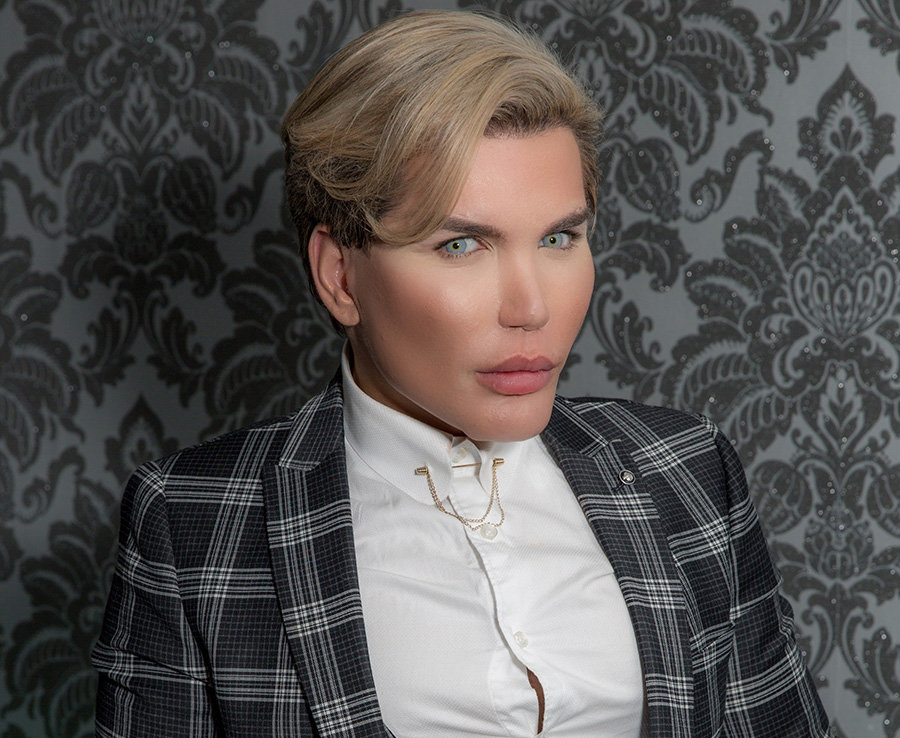The term "Human Ken Doll" has become synonymous with extreme body modification and the pursuit of an idealized appearance. This phenomenon has captivated the world as individuals strive to transform themselves into living dolls, challenging societal norms and beauty standards. The most famous figure associated with this trend is Rodrigo Alves, a Brazilian model who has undergone numerous surgeries to achieve his doll-like appearance. His journey raises intriguing questions about identity, self-image, and the lengths people will go to in order to attain their desired look.
The concept of the Human Ken Doll extends beyond mere aesthetics; it delves into the complexities of human desire and the often-blurred line between reality and fantasy. For many, the transformation into a doll-like figure represents empowerment and self-expression, while for others, it may signal deeper issues related to body image and self-worth. As we explore the life of the Human Ken Doll, we will uncover the motivations, challenges, and societal implications of such extreme transformations.
Rodrigo Alves' life story serves as a lens through which we can examine the broader phenomenon of body modification and the pursuit of beauty. In a world where social media influences perceptions of attractiveness, the Human Ken Doll phenomenon invites us to question our own beliefs about beauty and self-acceptance. Join us as we delve into the life of Rodrigo Alves, the Human Ken Doll, and explore the various dimensions of this captivating narrative.
Who is the Human Ken Doll?
Rodrigo Alves, widely known as the Human Ken Doll, is a Brazilian model and television personality who has gained notoriety for his extensive cosmetic surgeries. Born on July 30, 1983, in São Paulo, Brazil, Alves has undergone over 100 procedures to achieve his distinctive doll-like appearance. His transformation began in his teenage years, driven by a desire to conform to societal beauty standards. Alves' journey is not just about physical transformation; it reflects his ongoing struggle with identity and acceptance.
What Are the Most Notable Surgeries the Human Ken Doll Has Underwent?
Rodrigo Alves has become famous for a variety of surgeries that have drastically altered his appearance. Some of the most notable procedures include:
- Rhinoplasty (nose reshaping)
- Cheek and chin implants
- Breast augmentation
- Liposuction
- Botox injections
- Facelifts
What Motivates the Human Ken Doll's Transformations?
The motivations behind Rodrigo Alves' transformations are multifaceted. For him, the pursuit of beauty and perfection is intertwined with his identity and self-expression. He has often spoken about his desire to be accepted and admired, which he believes can be achieved through his unique appearance. Additionally, the attention and fame he has received as the Human Ken Doll have further fueled his desire to continue transforming himself. However, these motivations raise questions about the impact of societal beauty standards on individual self-esteem and mental health.
What is the Public's Reaction to the Human Ken Doll?
The public's reaction to Rodrigo Alves and the Human Ken Doll phenomenon has been mixed. While some admire his boldness and commitment to self-expression, others criticize his extreme transformations and question the sanity behind such drastic measures. Social media plays a significant role in shaping public perception, with many users sharing their opinions on his appearance, both positive and negative. This dichotomy highlights the ongoing debate about beauty, acceptance, and the lengths individuals will go to in pursuit of their ideal selves.
What Challenges Does the Human Ken Doll Face?
Despite the fame and attention that come with being the Human Ken Doll, Rodrigo Alves faces numerous challenges. These include:
- Health risks associated with multiple surgeries
- Criticism and bullying on social media platforms
- Struggles with self-acceptance and identity
- Pressure to maintain his doll-like appearance
How Has the Human Ken Doll's Image Evolved Over Time?
Rodrigo Alves' image has evolved significantly since he first gained fame. Initially, he embraced the title of the Human Ken Doll, reveling in the attention it brought him. However, as he navigated the challenges of being in the public eye, he began to reflect on the implications of his transformations. In recent years, Alves has expressed a desire to be seen as more than just a doll, emphasizing the importance of authenticity and self-acceptance. This shift in perspective underscores the complexity of his journey and the broader conversation surrounding beauty and identity.
What Can We Learn from the Human Ken Doll's Journey?
The story of the Human Ken Doll is a powerful reminder of the complexities of beauty, identity, and self-expression. As society continues to grapple with evolving beauty standards, Alves' journey encourages us to reflect on our own perceptions of attractiveness and acceptance. It challenges us to consider the impact of societal pressures on our self-esteem and the importance of embracing our authentic selves, regardless of how we may look.
Is the Human Ken Doll a Symbol of Empowerment or a Cautionary Tale?
Ultimately, the Human Ken Doll phenomenon can be viewed through two contrasting lenses. For some, Rodrigo Alves represents empowerment, illustrating the courage to defy societal norms and pursue one's desired identity. Conversely, others see it as a cautionary tale, highlighting the potential dangers of extreme body modification and the mental health challenges that can arise from the pursuit of unattainable beauty ideals. This duality reflects the ongoing discourse surrounding body image and self-acceptance in today's society.
As we conclude our exploration of the Human Ken Doll, it becomes clear that Rodrigo Alves' journey is not merely about physical transformation; it is a profound commentary on the human experience and the quest for acceptance in an ever-changing world. Whether viewed as a symbol of empowerment or a cautionary tale, the Human Ken Doll phenomenon continues to captivate our imagination and provoke important conversations about beauty, identity, and self-worth.


